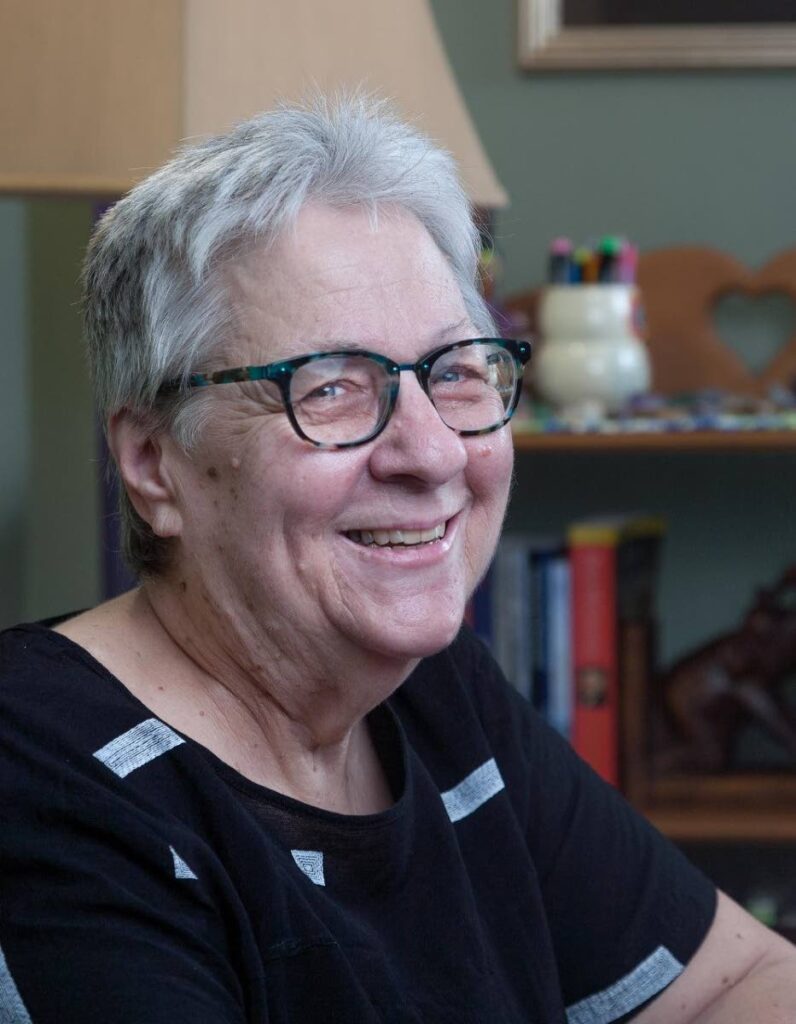How schools fail us

DEBBIE JACOB
FIVE YEARS ago on a Tuesday at 5.30 pm, while rats ran around in the kitchen behind my classroom in Port of Spain Prison, my students talked about their experiences in school. They had written a soap opera called Royal Wake-Up Call about life in prison and the prisons’ Rise Radio had recorded it. The inmates felt excited to hear their recorded voices and they felt happy about my plans to get the soap opera on a radio station.
“Miss, I didn’t know my voice could express anything but anger,” one young man said. Another inmate handed me a note that read, “Thank you for being my teacher. If I had a teacher who believed in me and we did things like the soap opera and the debates and read books like we read in class, things might have been different.” They liked nonfiction books, mainly history, biographies and “books to make us a better person.”
The late Akili Charles, who worked with Anand Ramlogan, SC, on the bail-for-murder-accused law, had honed his editing skills in that class.
“We wait for this class every week,” he said on that evening.
Most of these boisterous students, who were in remand for murder, said they had been expelled from school for causing trouble and carrying a gun to school. (I have never understood why society accepts expulsion as the best solution to deal with angry, dysfunctional teenagers.)
Don’t get me wrong, I am not criticising teachers who are doing their best in nearly impossible teaching situations with overcrowded classes that don’t meet students’ needs or prepare students for the real world where independent thinkers and problem-solvers should be valued in the workplace.
How do students find value in their education? How does what we teach in school help students to become confident and productive workers and citizens or deal with rage and disappointment? What can we do with the students we can’t reach in school besides toss them in the street?
Education needs an entire new look that fits students’ needs. It also has to make reading a priority. At-risk students benefit from reading books that reflect their lives. My students in YTC loved discussing the Kalisha Buckhanon's novel Upstate because it was about an incarcerated teenager struggling to maintain his relationship with his girlfriend and family. It was the perfect book for YTC, and the boys deemed it "...just like real life.”
Choosing the right books for elementary and secondary schools and including more Caribbean literature in English and history classes are a vital part of rethinking our education. I know this because I have taught in the International School of Port of Spain and seen books that have made an impact on students from 45 different countries and books that resonated with inmates in ten different prisons.
It feels like we are a country that punishes people for reading and punishes bookstores for existing. Why else do we have taxes on imported books? The best way to improve education is to remove that book tax to encourage bookselling and reading.
Developing a culture of readers will cut parents’ expenses for extra lessons. My students in prison did extra reading – not extra lessons – and they got top passes in CXC English language, English literature and Caribbean history.
So, let’s get real when we’re discussing education for everyone in this country. We should start by asking ourselves what it means when inmates in prison who got thrown out of school can be so enthusiastic about what they’re learning that they even forget about the rats running around behind their classroom.
As a final note, the soap opera my students wrote, and that I hoped to get on a radio station, never saw the light of day. Prison officials gave endless excuses about where it was in the system until it finally was declared officially lost. That’s too bad because Royal Wake-Up Call offered inmates a way to connect with society and show all of us what prison life is like. It served as a revealing creative exercise in communication, and I could imagine at-risk teenagers across the country listening and learning from this soap opera.
What a shame prisons lost that opportunity to educate the public and build inmates' confidence. Sadly, we miss many opportunities to educate students and ourselves.


Comments
"How schools fail us"